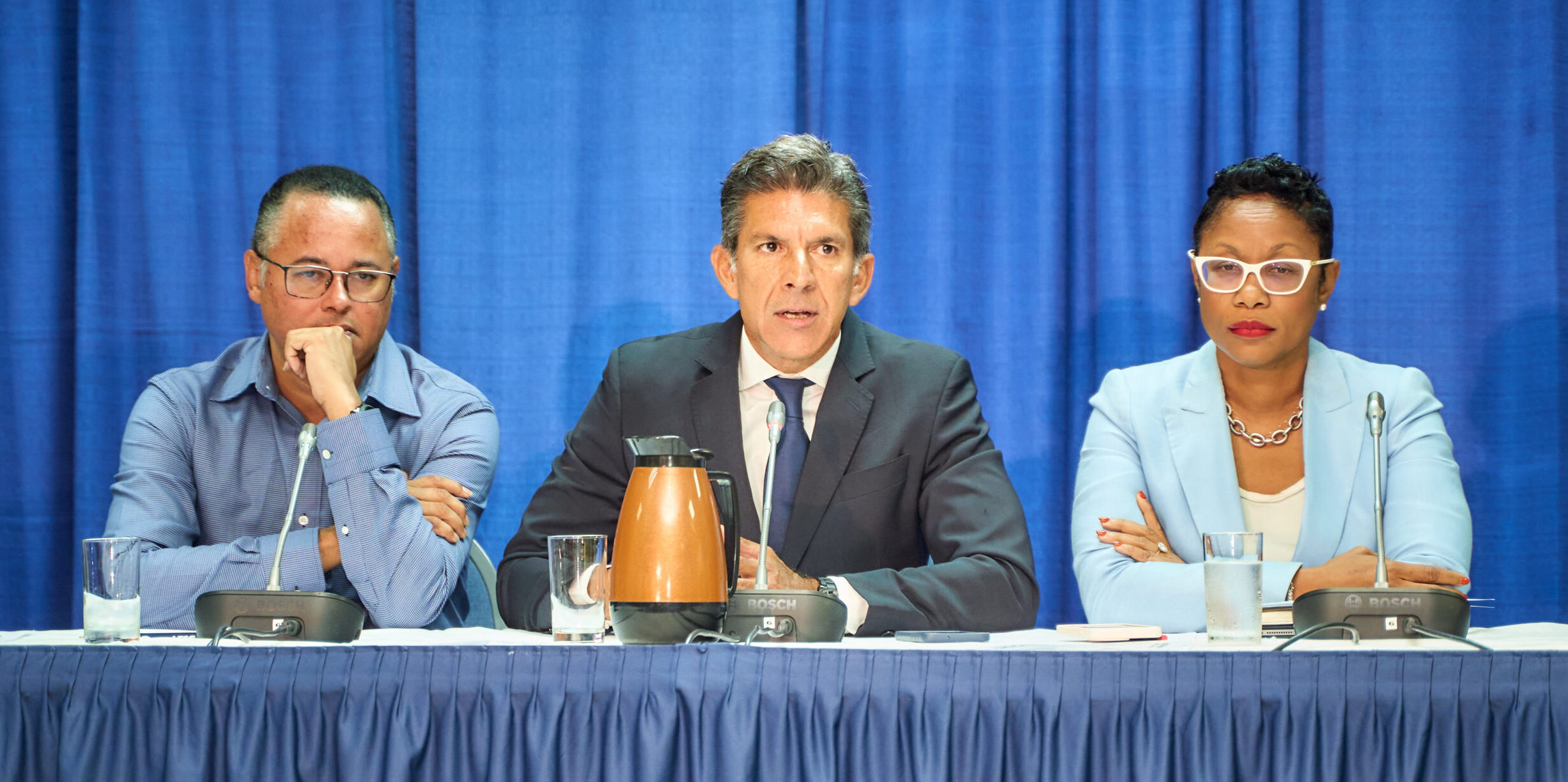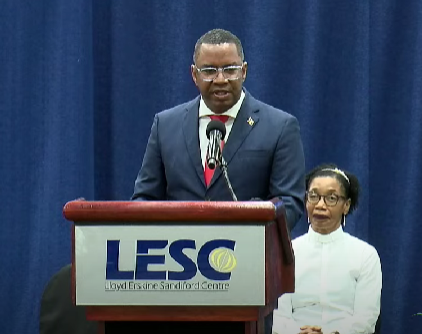Barbados Initiates Call for Information on Battery Energy Storage Systems (BESS) - Minister expects local and international bids in upcoming procurement

November 7, 2024
Barbados prepares for its first battery energy storage system procurement, inviting local and international bids to support renewable energy integration and grid stabilization. Consultation period for project insights open until November 28.
Minister of Energy Senator Lisa Cummins is expecting both local and international bids as Barbados moves closer to its first procurement for battery energy storage systems (BESS) which will unlock the grid and allow for the onboarding of renewable energy.
The government, through the Ministry of Energy and partners, is giving Barbadians and other entities the opportunity to respond to a Call for Request for Information (RFI) for new battery storage capacity. The Call for RFI is the stage prior to the launch of the Competitive Procurement Process for the implementation of 60 megawatts of battery energy storage systems.
The RFI, a formal process for collecting insights from prospective suppliers or investors on potential projects, will enable the Ministry of Energy to identify a portfolio of battery energy storage projects to support the country’s goal of stabilising the energy grid. The consultation period for submission of comments and suggestions and the RFI will commence on Friday and conclude on November 28.
Minister of Energy Senator Lisa Cummins, speaking at a launch for stakeholders and media on Wednesday at the Lloyd Erskine Sandiford Centre, said this “creates yet another investment opportunity in the renewable energy sector, while creating that relationship between unlocking the grid and then putting new investment opportunities on the market”.
“This is an open tendering process. We expect that local and international bidders will come forward,” she said.
The Barbados Light & Power Company (BLPC) has 5 megawatts (MW) of BESS installed at its Trents, St Lucy, site and another 15MW has already been approved by the Fair Trading Commission (FTC), through the Clean Energy Transition Rider.
Cummins said: “This process is really for independent power producers to be able to have storage . . . . The 15MW that they have had approved . . . will be housed under the control of the Barbados Light and Power Company, but this process is open to any investor.”
“This project that we have launched will enter the market giving us an initial combined 75 MW in this first tranche of procurement – 15 for BLPC and 60 for the competitive process. The expectation is that very shortly after we have completed this first tranche, we are going to go directly back out to market for the next round of battery energy storage systems for procurement,” she said, inviting the public to take up the investment opportunity.
“We have made a commitment as a government that we will be going for 150MW between now and 2026, and so the subsequent tranches of procurement will account for both the distribution side and the transmission side.”
The battery storage procurement process, set to commence in early 2025, aims to streamline the licensing backlog for investors with renewable energy systems awaiting grid connection. The government plans to launch a separate project to introduce wind energy into the national energy portfolio.
Cummings stressed that transparency in the entire process has been a major focus for stakeholders.
“There are some things that everyone will be at the table for, but then there are some things that everyone simply can’t sit at the table for. We have to ensure that things like transparency are kept at the front of our minds,” she said.
“So partners who have members who we want to be able to [give] an opportunity to provide bids, who want to have a commercial stake in the process, cannot sit at the table as we design it. By putting the request for information process out there, it gives you the opportunity not to design it but still to provide your feedback on what has to be considered before we launch the final documents.”
Managing Director of the Barbados Light and Power Company Limited, Roger Blackman welcomed the launch of the RFI, emphasising that battery storage is crucial to supporting the increasing interest in renewable energy investments in Barbados.
“We’ve been very successful as an island with solar penetration. In fact, we are at the global forefront with 100 MW on the grid already, and in order to continue that momentum and continue building on past successes, the batteries are needed to unlock that and provide firm capacity,” he said.
Meanwhile, Vice President of the Barbados Renewable Energy Association Meshia Clarke emphasised the importance of making room for locals in the procurement process.
“We ask that . . . we allow for special carve-outs which consider local content requirements. That is, space for local designers and installers to gain insight and experience in the design, specification, procurement, installation, commissioning and maintenance of these systems; [in addition to] space for capacity building and knowledge transfer needed to facilitate future procurement,” she said.
The Global Renewable Energy Mass Adoption Programme (RELP), a nonprofit organisation dedicated to accelerating and reducing the cost of renewable energy deployment in developing countries, will oversee the RFI process.
Over the past months, Senator Cummins stated that RELP, with the full participation of the other team members, completed a full grid characterisation study for Barbados. She pointed out that a new Grid Code had now been completed.
“The Grid Code was submitted in June of this year, and we now have [it] finalised and set to go before the Electricity Panel…of the Fair Trading Commission for finalisation. All of that is detailed work that has taken place over the last year,” she disclosed.


